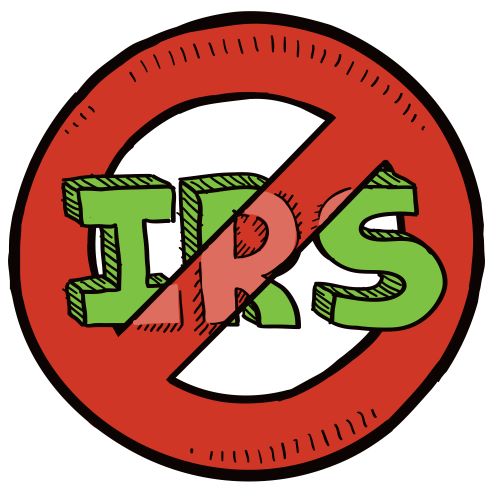Why Do We Still Have the Income Tax?
In 1788 when our Constitution was originally drafted and approved to be the supreme law of our land, the income tax was illegal. Having or not having an income tax has flip-flopped several times since 1788, and of course, we have an income tax today.
To understand what happened, you will need to understand two definitions:
- A “direct tax” is a tax placed on a person or organization. Examples of direct taxes would be income taxes and property taxes where persons or organizations are taxed.
- An “indirect tax,” on the other hand, taxes goods or services. Sales taxes are an example of an indirect tax.
The Original Constitution Said No Income Tax
The original Constitution said direct taxes will be apportioned or assigned to each state based on the number of people living in that state. In 1790, Virginia was the most populist state with a population of 747,610, while Delaware had 59,094.
For example, a state with a population that was 75% of the size of another state’s population would only be required to pay direct taxes equal to 75% of the larger state’s tax bill.
This original language on direct taxes and the apportionment requirements made it impossible to collect income taxes.
Congress mainly collected revenue by taxing imports of foreign goods shipped into the U.S., and taxing goods produced or consumed in the U.S., mainly liquor and tobacco. These were indirect taxes.
Civil War Income Tax
Much later, direct taxes were collected, such as an income tax during the Civil War from 1862 to 1872 to help finance the war.
1894 Income Tax
An income tax was again passed by Congress in 1894. However, the next year it was held unconstitutional by the Supreme Court because it was considered a direct tax and must be apportioned among the states based on population.
Charles Pollock, a Massachusetts citizen, sued so as not to pay a tax on income he received from property he owned. He lost in the lower courts but appealed to the U.S. Supreme Court which ruled that taxes on income from property were unconstitutional. The Court ruled such a tax was a direct tax, and this 1894 income tax was eliminated.
The Sixteenth Amendment Gave Congress the Power to Collect the Income Tax
In 1909 when the income tax amendment was proposed in Congress, the Democrats promised to resort to income taxation only “when the protective system of customs and internal revenue shall not furnish income enough for government needs.”
But in 1913, the Sixteenth Amendment was passed which gave Congress the power to collect direct taxes without being apportioned by population, and the income tax has been with us ever since.
In 1913, the average family paid approximately 1% of their yearly family income in taxes. The very rich, who had incomes over $500,000 per year, paid 6% of their incomes in income tax.
By 1950, the average American family of four members paid approximately 2% of their yearly come in income taxes.
Today, the federal tax rates are much higher. The highest tax rates go as high as 37% for individuals and 21% for corporations. This does not include federal estate tax and state and local tax rates.
Can We Eliminate the Income Tax?
There is a growing movement in the U.S. to eliminate direct taxation by the income tax, and replace it with an indirect tax, thereby restoring the original intent of the Constitution.
The “fair tax” is a tax replacement plan, where all the federal income taxes, including corporate, personal, gift, and estate taxes, are replaced with one national consumption tax on new purchases, above the poverty level only. This form of consumption tax comes with no exceptions. The poor would not pay more, and the rich would not pay less. All Americans would be untaxed up to the poverty level. Tax would be collected in a similar way sales taxes are now collected by the states. The IRS would be eliminated, and individuals would have control over their money. Under the proposed fair tax, the government would receive the same amount of money as it does now. To learn more visit www.fairtax.org

